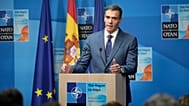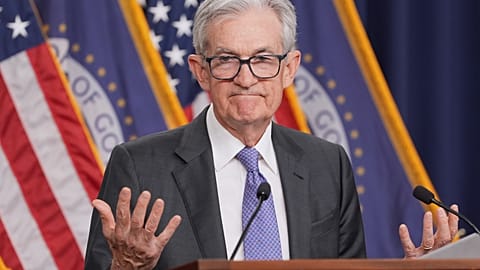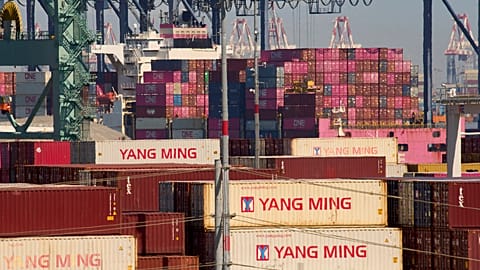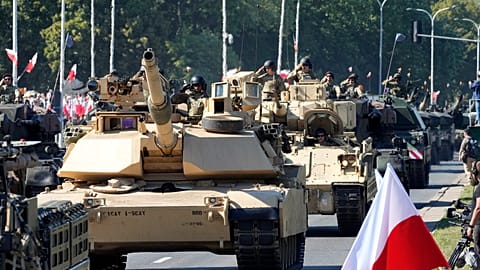Prices increased more slowly than expected in March according to official figures, fuelling hopes for an ECB rate cut.
German inflation eased in March to an annual rise of 2.3%, according to preliminary data released by the country's official statistics office on Tuesday.
This is down from February's reading of 2.7%, showing that, while prices are still increasing, they are doing so at a slower pace.
2.3% is the harmonised inflation rate which means that it is adapted for comparison with eurozone countries.
Germany's standard consumer price index (CPI) was up 2.2% this month compared with the same period a year earlier, and core inflation, which excludes volatile food and energy prices, showed an annual rise of 3.3%
The drop in inflation means that the country is nearing the European Central Bank's (ECB's) target of 2%, raising market hopes for an imminent interest rate cut.
Officials from the European Central Bank are nonetheless walking a tightrope. If they cut rates too soon, inflation could rebound. If they hold rates too high, this could significantly harm growth.
"Some of the reduction in [German] inflation is due to lower underlying inflation including services inflation," said Andrew Kenningham, Chief Economist at Capital Economics.
"That is really encouraging for the ECB and suggests that policymakers will feel more confident that they can begin to cut interest rates soon ... we now think a June rate cut is highly likely."
Although the rest of Europe is also stagnating under raised borrowing costs, Germany is doing particularly badly.
The country's economy shrank by 0.3% in both the fourth quarter and over the whole of 2023, making it last year's worst performing major economy on a global scale.
The downturn was driven by weak foreign demand for German goods, low spending by domestic consumers, and depleted workforce numbers.
Germany has also been hit particularly hard by the energy price spike caused by Russia's invasion of Ukraine.
This is partly due to the nation's strong former dependence on Russian power, as well as the reliance of the German economy on heavy industry.
The most recent inflation figures are a precursor for wider data on eurozone price rises, due on Wednesday.
Markets are hoping that a lower-than-expected figure could push the ECB to lower borrowing costs, although it's unlikely this will happen at next Thursday's rate meeting.


















